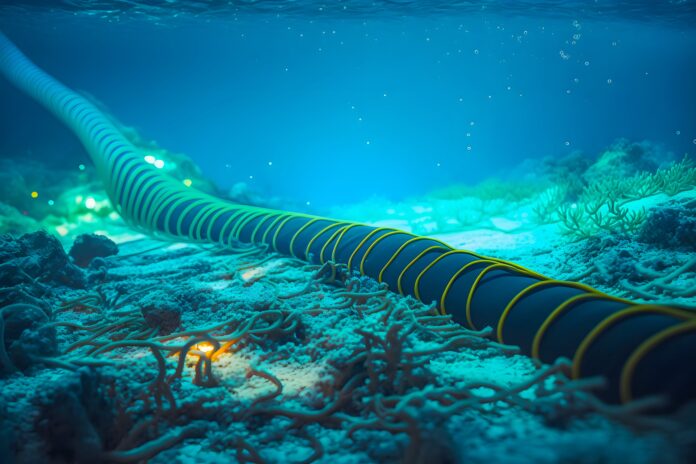It wants better governance and public funding to address the issue, including a public organisation to be responsible for monitoring and repairs on the seabed
The European Telecommunications Network Operators’ Association ETNO) says submarine communication cables are “a significant concern for Europe’s security, resilience, and sovereignty”.
It states this vulnerability is proven by attacks on the Nord Stream undersea gas pipeline in 2022 and undersea cables connecting Estonia and Finland in October 2023.
The European Commission is about to announce its strategy for its telecom sector and internet infrastructure. This includes a Recommendation to strengthen coordination among Member States in the deployment, security, and governance of crucial cable connections.
ETNO thinks there are two strands to securing Europe’s subsea infrastructure.
Resilience through funding
The first requests public funding and preferential treatment to protect European operators’ investment in subsea in a just-published ‘Reflection paper’.
It reads, “We strongly advocate for continued support from the EU’s Connecting Europe Facility (CEF) Digital program to strengthen the EU’s capabilities in submarine cable connectivity.
“The program should be prioritized for refinancing in the next mandate. The goal should be to bolster the competitiveness and relevance of European operators on strategic routes compared to non-EU investors, while adhering to CEF obligations…to avoid diluting private investment from European operators in existing or planned infrastructure.
“The CEF Digital program could also contribute to reinvesting in critical cables at the end of their lifecycle. The implementation of the Global Gateway initiative could also become an efficient lever, should relevant financial tools be developed. Ensuring the robust monitoring and maintenance of submarine cables is essential for their sustained functionality and resilience.”
Public scrutiny, public payment
In particular, according to ETNO operators monitor coastal cables but are struggling to monitor and repair deep-sea cables, which it thinks should receive public funding and be undertaken by public bodies. This would help mitigate “rising costs that operators consistently encounter, such as those associated with securing effective repair and maintenance strategies”.
“EU funding mechanisms” should help monitor the seabed leveraging technologies such as satellite tracking in areas that are inaccessible to operators. Such publicly funded capabilities should be the responsibility of “public authorities, aligned with their financing contributions and jurisdictional powers”.
ETNO argues that alternative approaches, such as operators being obliged to install monitoring tools in cables, would impose “a significant financial burden on operators, exceeding the cost of the cables themselves”.
Governance
ETNO thinks governance is also key to mitigating risks posed to Europe’s subsea cables.
It says that Member States exercise jurisdiction over cables in territorial waters, but no single body has jurisdiction in international waters.
So, to improve regulatory clarity and promote cooperation, Member States should strive to assert as much territorial jurisdiction as possible over subsea cables, ETNO says. In addition, Europe must implement harmonised rules, especially concerning permits, “to ensure a coordinated and consistent approach across jurisdictions”.
The processes for gaining permission are slow and difficult, which hampers installations and timely repair of faults and compromise the security and resilience of submarine cable networks.
EU models
ETNO says, “We strongly advocate…comprehensive reforms in the permitting procedures. This includes clear identification, simplification, and unification of the process for installation, repair, and decommissioning of submarine cables. These processes should be harmonized throughout Member States as much as possible, including the introduction of a one-stop-shop approach in every country.
It envisages this process would establish a single point of contact for operators and public agencies. It cites the example of a recent order from the Portuguese government [document in Portuguese] as a model for best practice in the EU. The order outlines measures to simplify the installation of submarine cables, such as setting up a single licensing portal.
Civil and military
ETNO also highlights the importance of collaboration between civil and military stakeholders is also essential. It explains, “the collaborative effort should extend to the development of contingency and business continuity plans that incorporate diverse perspectives from the private sector, public sector, and defense entities.
“The dialogue should equip submarine cable operators and landing providers with the insights required to appropriately allocate human, financial, and material resources, enabling them to formulate and implement the most effective security and resilience strategies.”


